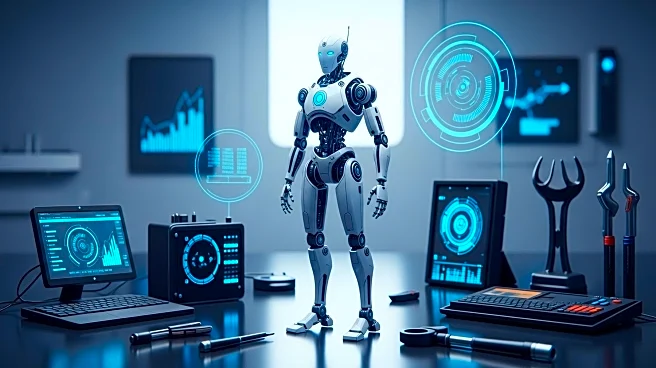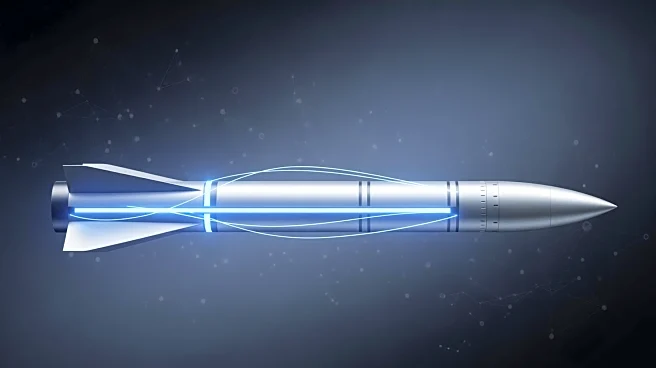What's Happening?
Elon Musk has announced a strategic pivot for Tesla, emphasizing the future value of the company will largely derive from its Optimus humanoid robots rather than its electric vehicle business. This shift was revealed alongside Tesla's 'Master Plan Part IV,' which positions robotics and AI as central to the company's future. Musk plans to deploy thousands of robots in factories by the end of the year, with production scaling to one million units annually by 2030. Each robot is estimated to be valued between $20,000 and $30,000. This move comes as Tesla faces a slowdown in its core business, with global EV deliveries declining by approximately 13% in the first half of 2025. Despite investor concerns, Tesla's stock rose modestly following the announcement, buoyed by positive remarks from Salesforce CEO Marc Benioff after visiting Tesla's robot facility.
Why It's Important?
The shift towards robotics and AI represents a significant change in Tesla's business strategy, potentially redefining its market position. If successful, Optimus robots could become a major revenue stream, diversifying Tesla's offerings beyond electric vehicles. This move could influence the broader industry, encouraging other companies to explore humanoid robotics as a viable business model. However, skepticism remains regarding the feasibility and profitability of scaling humanoid robots. Investors are cautious, with some analysts trimming forecasts due to concerns about the timeline and commercial viability of this new venture. The success of Tesla's pivot could have far-reaching implications for the future of automation and AI in manufacturing and other sectors.
What's Next?
Tesla must address several challenges to realize its vision for Optimus robots. Key issues include developing a clear commercial roadmap, establishing realistic development timelines, and demonstrating the ability to scale humanoid robotics profitably. The company will need to convince investors of the long-term viability of its robot-first strategy, especially in the face of declining EV sales. As Tesla moves forward, it will be crucial to balance innovation with practical business considerations to ensure sustainable growth. The industry will be watching closely to see if Tesla can deliver on its ambitious promises or if the Optimus project will join the ranks of overpromised tech initiatives.
Beyond the Headlines
Tesla's focus on humanoid robots raises broader questions about the future of automation and AI in society. The potential productivity gains from widespread adoption of such technology could reshape economies and labor markets. Ethical considerations regarding the deployment of humanoid robots, including their impact on employment and privacy, will need to be addressed. Additionally, Tesla's strategy highlights a divergence in industrial approaches, with rivals like Amazon focusing on non-humanoid automation. The success or failure of Tesla's Optimus project could influence the direction of robotics development across various industries.








